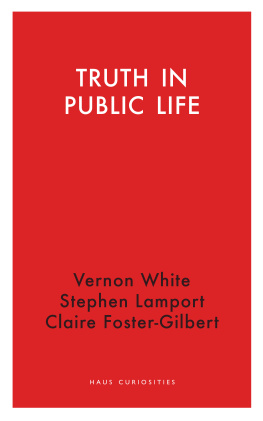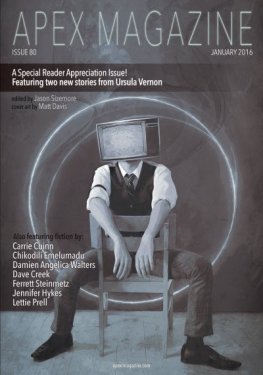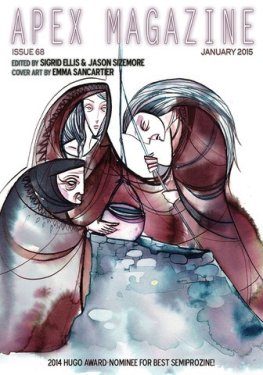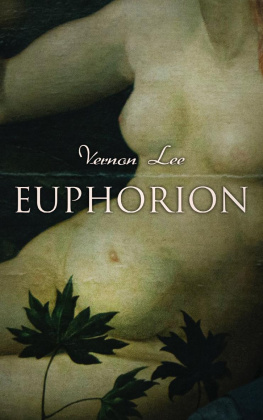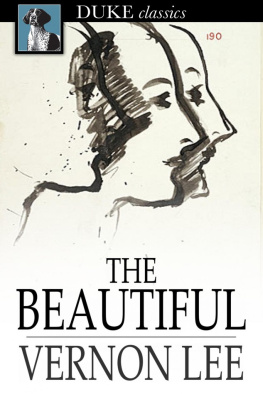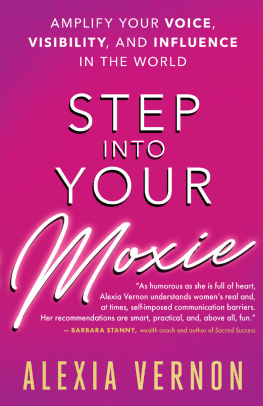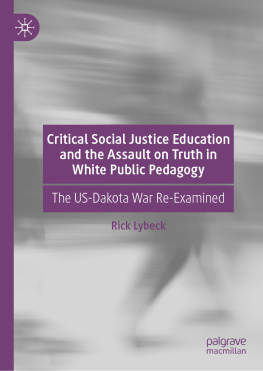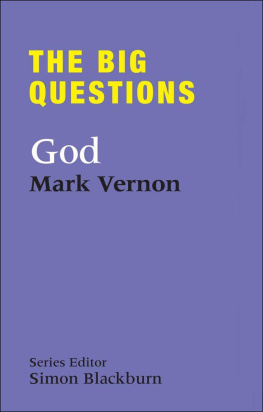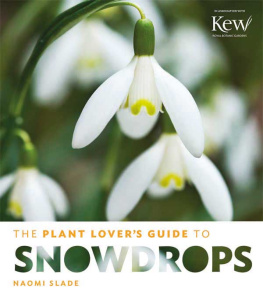About the Contributors
Claire Foster-Gilbert is the founder director of Westminster Abbey Institute. A public philosopher and author, Foster-Gilbert has played an instrumental role in the fields of medical research ethics and environmental issues.
Stephen Lamport was the Receiver General of Westminster Abbey from 2008 to 2018, and a member of Westminster Abbey Institute steering group from its beginning in 2013. He now serves the Abbey on an honorary basis as Deputy High Bailiff.
Vernon White is a Visiting Professor at Kings College, London. He was Canon Theologian of Westminster from June 2011 until October 2018 and, from 2016, also served as Sub-Dean. White was a member of the steering group for Westminster Abbey Institute from its inception.
First published by Haus Publishing in 2020
4 Cinnamon Row
London SW11 3TW
www.hauspublishing.com
Copyright Westminster Abbey, 2020
The right of the authors to be identified as the authors
of this work has been asserted in accordance with
the Copyright, Designs and Patents Act 1988
A CIP catalogue record for this book is
available from the British Library
Print ISBN: 978-1-912208-90-6
Ebook ISBN: 978-1-912208-91-3
Typeset in Garamond by MacGuru Ltd
Printed in Czech Republic
All rights reserved
Acknowledgements
Sincere thanks are due to the Dean and Chapter of Westminster, the Steering Group and Council of Reference of West-minster Abbey Institute, Asha Astley, Ruth Cairns, Mark Easton, Harry Hall, John Hall, Alice Horne, Aneta Horniak, Kathleen James, Igor Judge, Sen Moore, Maurice Saatchi, Barbara Schwepcke, Ursula Williams, and Sunbeam House in Hastings.
Introduction
Claire Foster-Gilbert
This book has one task only: to cherish truth in public life. This is not a luxury. It is a moral imperative. To be more precise, making every effort to discover the truth and to tell it are moral imperatives. Giving up on the task because it is hard (and it is) or because it is contestable (which it is) or because no one has ever seen absolute truth (which they havent) is not an option, not if we want to enjoy a civilised society in which we are free to flourish.
Taking the last difficulty first, that truth in its absolute form has never been seen, the assertion raises the question: how do we know we have never seen absolute truth? For only if we have some kind of prior knowledge of what absolute truth is can we know that what we see is not it. The letter O typed here is not an absolutely perfect circle; we know it is not a perfect circle because we somehow know what a perfect circle looks like. This argument is more than mere sophistication. It illustrates the fact that truth exists and is known to us. This in turn provides the solid bedrock upon which we build the honesty, trustworthiness, transparency and reliability of our public servants and the institutions through which they serve. We may not be able to see or tell the absolute truth about any situation, but we can know how close or how far but tomorrow, because the truth is what they say it is, two plus two may equal something else. We can only judge whether they are right or not if we have the freedom and will to test the truth of their claims. We cannot afford to accept assertions lazily on the simple basis that they are made by someone we like.
Assertions of truth are contestable the second difficulty because they are made by us, humans with partial perspective, interests to defend, and only words as our means. Like the committee of blind people that tried to describe an elephant, each person asserting the truth of the bit of the elephant they were able to touch, we cannot see the whole. Like party politicians wanting to be elected, or secretaries of state wanting larger budgets for their departments, we all have self-interest, which skews our choice of what we claim to be true. And for all of us struggling to say what we really mean, including me writing this introduction, words cannot, in the end, be more than proximate expressions of absolute truth. So humans and their means of expression are fallible. But if public servants cease to strive to see the truth as widely as they can, defend the truth as disinterestedly as they can, and articulate the truth as clearly as they can, they also surrender societys vulnerable members into the hands of the narrow-minded, self-interested and obfuscatory. Injustice abounds if the truth is not sought in the public square. Why do public enquiries matter so much if not to ensure that what really happened to the victims is known about and at the very least is not repeated on vulnerable people in the future?
So yes, telling the truth is hard, the third difficulty. Inertia can propel us towards lazy lies. But what better purpose for a human life than to seek truth, to sustain it and to tell it? It is especially commanded of public servants who should actively protect the disinterestedness of the public square in which they operate.
The essays in this book, based upon lectures delivered in Westminster Abbey in 2018, take the points I have touched upon much further, exploring and responding to the difficulties for public servants as they seek to rule and run a world in which truth is, at best, debased. In Truth Pursued, Vernon White, acutely aware of the elusiveness of truth, uses compelling examples from literature to explain how it is that we rarely know what really happened anywhere, at any time, to anyone. But then he makes a powerful case for continuing to seek truth. There is nothing in the difficulties of its pursuit that denies the basic meaning or existence of truth itself. The bare notion of truth still makes sense, and this, he shows, has practical relevance. First, it establishes a goal for scientific and other pursuits: whatever the relativity and limits of our current understanding of any thing, the truth of that thing is there, and is the focus and means for our understanding to become less limited. The givenness of truth, however elusive, is also a bulwark against cynicism that deliberately exploits the difficulty of finding the truth to some other, nefarious end: deliberately misleading people, for example, in order to exert political or economic influence. White also addresses the moral question of the use to which truth is put. His essay is a powerful tool in the hands of those who want to defend truth in the face of its denigration, not least because he does not caricature the arguments he wants to address. He resists this ugly characteristic of an age in which winning an argument seems to be more important than discovering the truth.
Stephen Lamports essay, Truth Sustained, is written out of his long experience of public service in the foreign office, as Private Secretary to The Prince of Wales and latterly as the Receiver General of Westminster Abbey. Many years of faithful service have taught him the wisdom of the honest pursuit of fact and reality, and of never veering too far from them. This pursuit and tenacious adherence to truth is not simple and nor is it quick or easy, because truth can take time to reveal itself: events may only declare their true meaning as time goes on. But the cost to a civilised society of lying cannot be overstated. Lamport mourns the ways in which social media has magnified untruth, without accusing it of causing our post-truth culture. He calls for a rekindled adherence to the Nolan Principles of public life, which themselves have shown a commendable resilience since their articulation in 1994, but he also calls on the more intangible support of the faith for which Westminster Abbey stands. In Parliament Square, the great institutions of law, parliament and Whitehall contribute to what Lamport calls, exquisitely, the symphony of truth, to which the Abbey, on the south side of the square, contributes its harmonic search for ultimate reality and truth.



